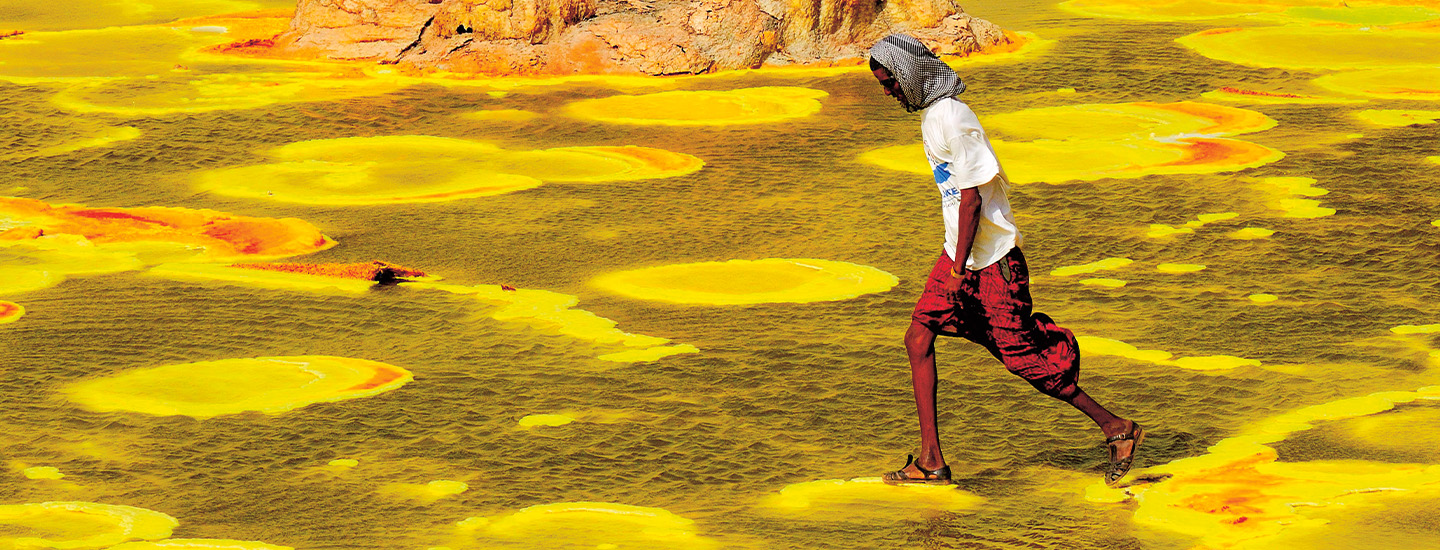Jim McMahon/Mapman®
After a long journey by camel across the hot, dry terrain of northeastern Ethiopia’s Dallol area, you top a ridge and gaze down at a surprising sight: large ponds of bright-green water surrounded by oddly shaped mounds. But resist the urge to guide your camel down to this valley for a swim—or even to dabble your toes in the water. These pools are filled with hot, bubbling water so acidic it would eat away at your skin. Not quite the refreshing break you’d hoped for!
This unusual location is the Danakil Depression of East Africa, one of the hottest places on Earth. Here, daytime temperatures can reach 125° Fahrenheit or higher.

